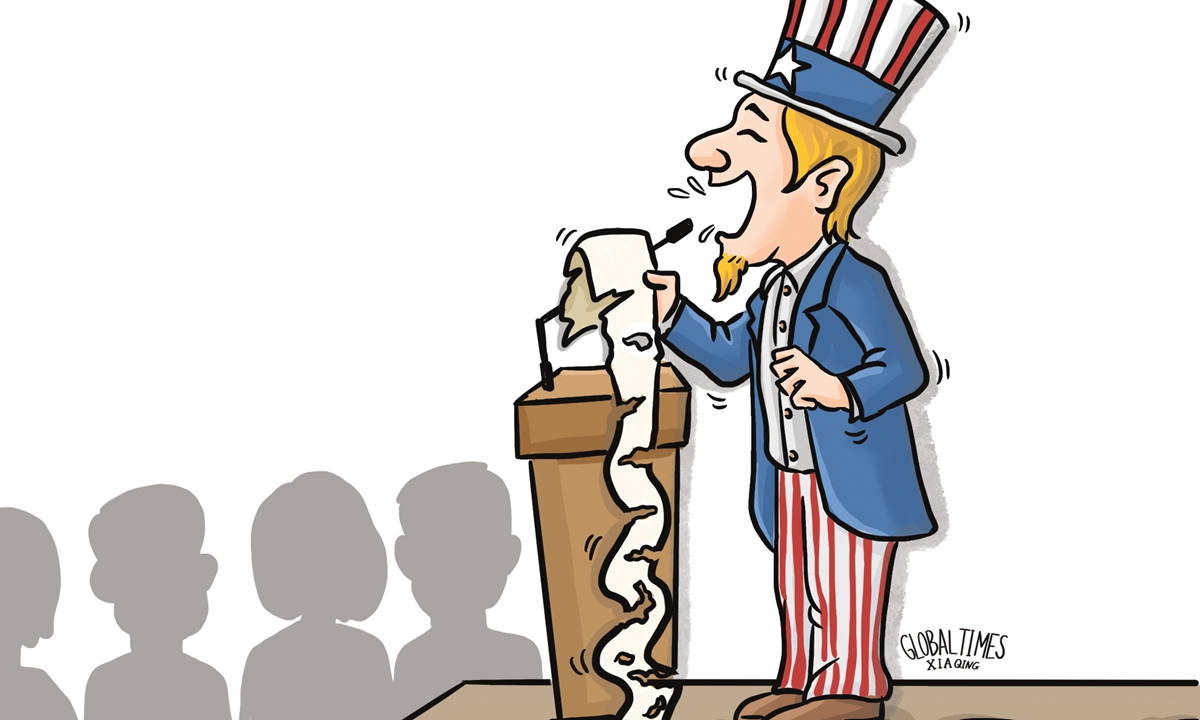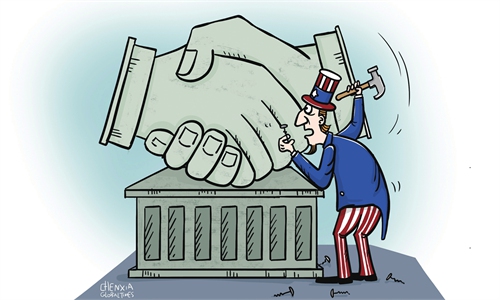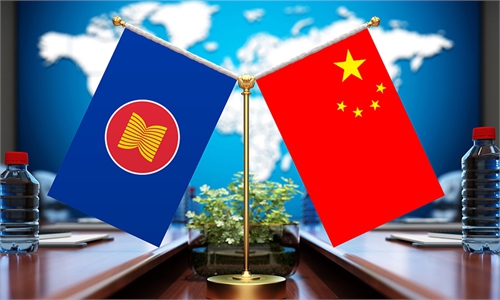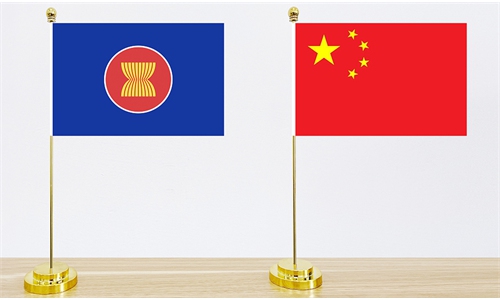COMMENTS / EXPERT ASSESSMENT
US has no feasible plan to help ASEAN 'build back better'

US has no feasible plan to help ASEAN 'build back better'. Illustration: Xia Qing/GT
US Assistant Secretary of State for East Asian and Pacific Affairs Daniel Kritenbrink kicked off a four-country visit to Southeast Asia over the weekend, in an attempt to, among other things, further promote economic and trade ties with countries in the region. The trip has been viewed as yet another move by the Biden administration to counter China.
In addition to implying that the US will unite countries throughout the region against China on issues including regional security and human rights, a statement from the US Department of State said that Kritenbrink will also discuss how the US and its allies can improve economic relations to "build back better" from the COVID-19 pandemic.
Kritenbrink's visit is the latest effort by the Biden administration to reestablish influence in Southeast Asia. US President Joe Biden last month joined leaders of the Association of Southeast Asian Nations (ASEAN) for a virtual summit, the first time in four years that Washington has engaged at the top level with the bloc. Earlier this month, several US diplomatic and trade officials also visited Asia.
During the ASEAN summit, Biden said that the US would provide $102 million towards the bloc's COVID-19 recovery and start a dialogue to explore a regional economic framework. Shortly after that, US Commerce Secretary Gina Raimondo also visited several Asian countries, during which she stressed that the US plans to launch "a formal process" to develop an Indo-Pacific economic framework early in 2022.
The US is reportedly planning to host an in-person summit between Biden and leaders of the ASEAN in Washington in January. It is believed that an important goal of Kritenbrink's visit to the four ASEAN members this week is to confirm more arrangements for the upcoming summit.
Biden's emphasis on reaffirming ties with ASEAN is a continuation of the Obama administration's "Asia-Pacific rebalancing" strategy. The Obama administration had already noticed that the growth of trade between the US and ASEAN has begun to lag behind China-ASEAN trade. In order to catch up, the US came up a series of measures to promote trade with the bloc. The original Trans-Pacific Partnership (TPP), which later became the Comprehensive and Progressive Agreement for Trans-Pacific Partnership (CPTPP) after the US' withdrawal, was first proposed by the Obama administration to deepen trade ties with economies in the region.
However, Obama's policy did not make actual progress, and the only results were completely destroyed by the Trump administration. After the former US President Donald Trump took office, he totally reversed Obama's ASEAN trade policy. Trump's exit from Asian trade pact has seriously damaged the US-ASEAN trade. US' goods and services trade with ASEAN totaled about $362.2 billion in 2020, lower than the $410.75 billion between China and ASEAN in the half of 2021.
Although the trade and economic team of the Biden administration is sending out clear signals that the US hopes to repair economic and trade relations with ASEAN, its approach has been widely criticized for lack of feasible plans. When making plans to promote economic and trade ties with ASEAN, the Biden administration is apparently more focused on geopolitical calculations than following through with meaningful actions.
The Biden administration had repeatedly said that it won't join the CPTPP, but will bring up an Indo-Pacific economic framework. Trying to draw ASEAN into the Indo-Pacific strategy, the US is obviously seeking to use this economic plan as a geopolitical tool. The plan is currently only a concept and has no substantive content. It took 7-8 years to promote the TPP when the US economy was relatively strong during the Obama era. Now that the US economy is in a difficult position, whether it has the strength to promote the Indo-Pacific economic cooperation framework is still questionable.
Southeast Asian countries are still watching the development of Biden's plan, and have seen clearly Biden's focus on coping with domestic economic problems. The US is quickly losing the credentials required to act as a leader in promoting other Asia-Pacific or Indo-Pacific new economic development plans. It is expected that ASEAN countries will continue to focus on promoting trade liberalization under the framework of the Regional Comprehensive Economic Partnership (RCEP) and CPTPP, and then let the US decide whether it wants to participate in the process of trade liberalization in the region under these two frameworks. Let us wait and see what choice the Biden administration will make.
The author is a research fellow at the Shanghai Institute for International Studies. opinion@globaltimes.com.cn



